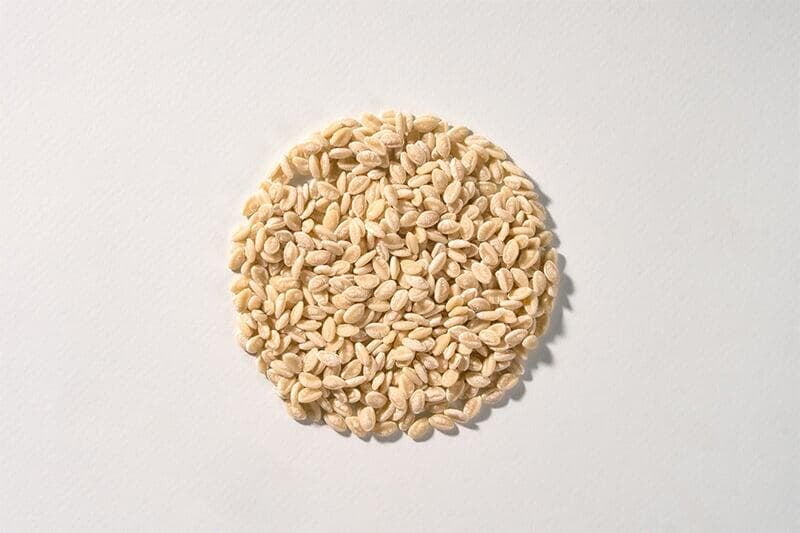On July 17, 2024, Carbios, a French biotech company, published an article in the journal Nature titled “An engineered enzyme embedded in PLA for the manufacture of self-biodegradable plastics”.
The article was co-authored by Carbios and longtime partner Toulouse Biotechnology Institute (TBI). Nature is widely recognized as the most influential scientific journal.
Carbios Active enables PLA home composting without line modification
The paper describes the realization of the engineered enzyme and names its enzyme solution Carbios Active, with the following advantages:
Firstly, the enzyme is able to withstand the high temperatures of 170°C required in the PLA production process and is directly integrated into the plastic material conversion process without any modifications to the product line.
Secondly, this PLA plastic embedded with engineered enzymes can be fully and rapidly degraded under home composting or methanization conditions while ensuring high quality compost that is non-toxic and microplastic. It has been shown to completely break down and biodegrade in 20 to 24 weeks, which is much faster than the 26-week requirement for home composting, and has also been shown to help produce more biomethane, another source of waste recycling.
In addition, the material remains intact during long-term storage and enzymes are only activated under composting or methanization conditions, ensuring compatibility with PLA-based commercial applications such as flexible packaging (e.g., sauce packets and wraps) and short-life items (e.g., food containers, yogurt pots and coffee capsules).
This breakthrough by Carbios opens up new possibilities for the biodegradation of PLA at ambient temperatures, including home composting conditions. Currently, Carbios has a production line up and running at its headquarters in the central French city of Clermont-Ferrand, with a capacity to produce 2,500 tons of Carbios Active per year (equivalent to 50,000 tons of enzyme-embedded PLA per year). On this basis, it is estimated that Carbios Active is added at a rate of 5%.

Carbios Active, in the form of pellets, is integrated directly into the packaging or product of PLA at the production stage, allowing composting at room temperature.
Nature confirms Carbios' leadership in enzymatic degradation of plastics
Alain MARTY, Chief Scientific Officer of Carbios, said: “Publication in Nature is a particularly proud moment for all the teams that contributed, especially being recognized by their scientific peers. Developing an efficient enzyme that can withstand the 170°C required to introduce it into PLA is an outstanding scientific feat! Our last article in Nature in 2020 was key to bringing our PET biorecycling technology to the world stage.
“This publication raises the profile of Carbios' unique biodegradable technology, and we are very excited about it as it provides a practical and scalable approach to a variety of PLA-based industrial packaging applications.”
Carbios Active is a practical application of Carbios' expertise in enzyme optimization and polymer science,” said Emmanuel Ladent, CEO of Carbios. As Carbios expands its portfolio of enzyme solutions beyond PET, PLA embedded with enzymes represents a significant leap forward, addressing a key gap in the compostable plastics market. In addition to recent certifications (such as the Food Contact Notification issued by the North American FDA), the scientific community has recognized the performance of Carbios Active and supported its commercial deployment through this new publication in the journal Nature. Thanks to our long-term exclusive partnership with Novonesis (Denmark), we are translating this scientific breakthrough into reality.”
Isabelle André, Director of Research at CNRS, said, “I am very proud that the hard work and dedication of the researchers at the University of TBI, as well as our long-time partners at Carbios, have been recognized by the journal Nature. This pioneering work on enzyme-embedded PLA for the manufacture of self-biodegradable plastics is a testament to our commitment to developing sustainable solutions with enzyme engineering at their core.”
The article was co-authored by Carbios and its academic partners, biotechnology researchers from the Toulouse Institute of Biotechnology (TBI), as well as two renowned professors from the University of Mons, Belgium, and Kasetsart University, Bangkok, Thailand. This collaboration reaffirms Carbios' ambition and ability to unite partners in an efficient ecosystem to provide collective solutions to major environmental challenges.

